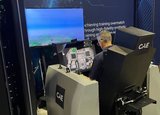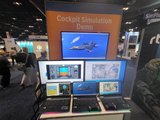Aligned with the latest version of Force Design 2030, the US Marine Corps (USMC) has been seeking ways to increase the use of artificial intelligence (AI) capabilities within the training realm.
The service is divesting its legacy training systems and simulations to adopt solutions that can replicate current and future operating environments with high fidelity, allow preparing marines to perform dangerous tasks in a secure way and reduce training costs.
Speaking at I/ITSEC 2023 in Orlando, Florida, Lt Gen Kevin M. Iiams, commanding general of US Marine Corps (USMC) Training and Education Command, claimed that the branch ‘needs more AI’,
























